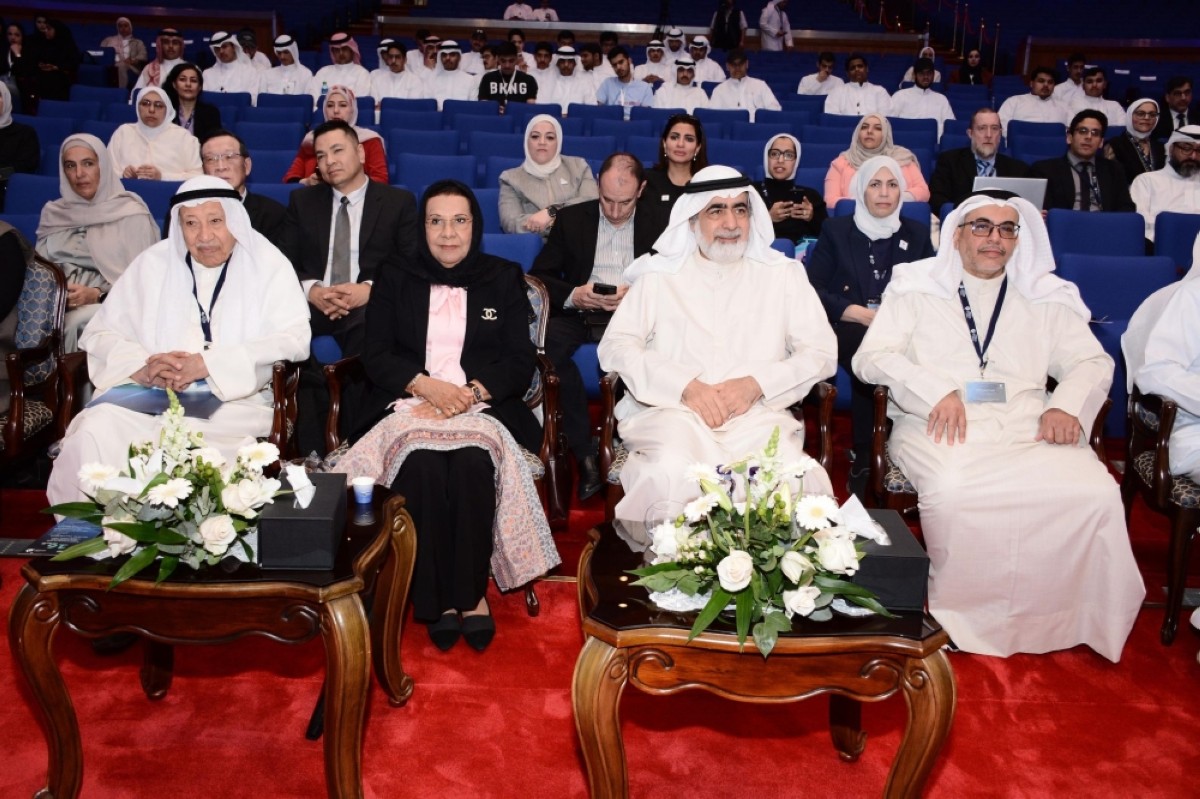KUWAIT: Abdullah Al-Salem University’s recent educational summit, held from April 16 to 17, highlighted key recommendations for shaping the future of education in the age of innovation. The summit, titled “Learning in the Age of Innovation: Benefits, Challenges, and Jobs”, focused on how technology, particularly artificial intelligence (AI), data privacy, and virtual reality, can transform learning. Experts gathered to discuss the challenges and benefits of integrating these innovations into education, emphasizing the importance of building adaptable systems, securing personal data, and fostering inclusive learning environments for all students.
“We must break down institutional barriers and promote the exchange of knowledge and expertise,” said Dr Adel Al-Husainan, Secretary-General of the University’s Founding Board of Trustees, in his welcoming speech. He emphasized the importance of enhancing education through modern technologies, which he believes will promote collaboration and innovation across all sectors. “Such scientific gatherings are essential for facilitating innovation and advancing progress in both education and research,” he added.
One major recommendation was to enhance personalized learning through AI. Experts suggested transitioning from traditional e-learning to fully digital systems, using AI tools like chatbots to tailor education to individual needs. They also called for the creation of institutional support systems that allow students to explore and develop their own AI-driven ideas, while ensuring that data privacy is maintained.
The summit also addressed the growing concerns around cybersecurity and data privacy in education. Experts stressed the importance of developing secure systems based on ethical guidelines, including using encryption and robust security protocols, especially for cloud-based services. They urged institutions to adhere to international standards when handling sensitive data and implement AI-powered security solutions to safeguard student information.
Virtual and augmented reality (VR/AR) in education was another key area of discussion. Experts recommended launching pilot projects and investing in the infrastructure needed to support VR/AR learning tools. This includes aligning VR/AR projects with educational curricula to ensure accessibility and inclusiveness, while also addressing privacy and ethical considerations.
The summit’s discussions also led to the call for flexible educational policies. These policies would promote ethical AI use and data privacy while encouraging collaboration between institutions to share best practices and adapt to rapid technological changes. Continuous evaluation and updates to these policies were also emphasized as essential to ensure they remain relevant in the face of evolving educational needs. Additionally, the final panel, featuring new perspectives from young Kuwaiti researchers, called for the establishment of incubators and accelerators to turn research into practical products and services. The panel also highlighted the need for improved access to information and stronger collaborative networks among institutions to drive innovation.
The summit concluded with the announcement of student project winners, with awards recognizing the top innovations in education and technology. The KFAS Innovation Award went to Kish from Kuwait University and Stat Cam from Gulf University for Science and Technology. The “Watan Al Ibda’a” Award by Zain was given to Halali from Kuwait University and Threion Space Band from Abdullah Al-Salem University. The Boubyan Innovation Award went to Chatbot from Arab Open University, while the Abdullah Al-Salem University Award recognized Plastic Recycle and Power the Future from Abdullah Al-Salem University.
Key recommendations from the summit
AI-personalized learning: Use AI tools like chatbots to make learning more tailored to individual student needs.
Shift from traditional e-learning to fully digital platforms for a more engaging experience.
Cybersecurity & data privacy: Ensure the security of student data by using encryption and robust protocols.
Follow international standards to protect sensitive information, especially in cloud services.
Virtual & augmented reality: Introduce VR/AR to make learning more interactive and immersive.
Ensure that these technologies are accessible to all students and align them with educational goals.
Flexible policies: Create adaptable policies for data privacy and ethical AI use in education.
Foster collaboration between educational institutions to share best practices and stay up-to-date with digital trends.
Collaborative research: Build networks among institutions to turn academic research into real-world products and services.
Set up incubators to support new research ideas and foster innovation.
Factbox:


















